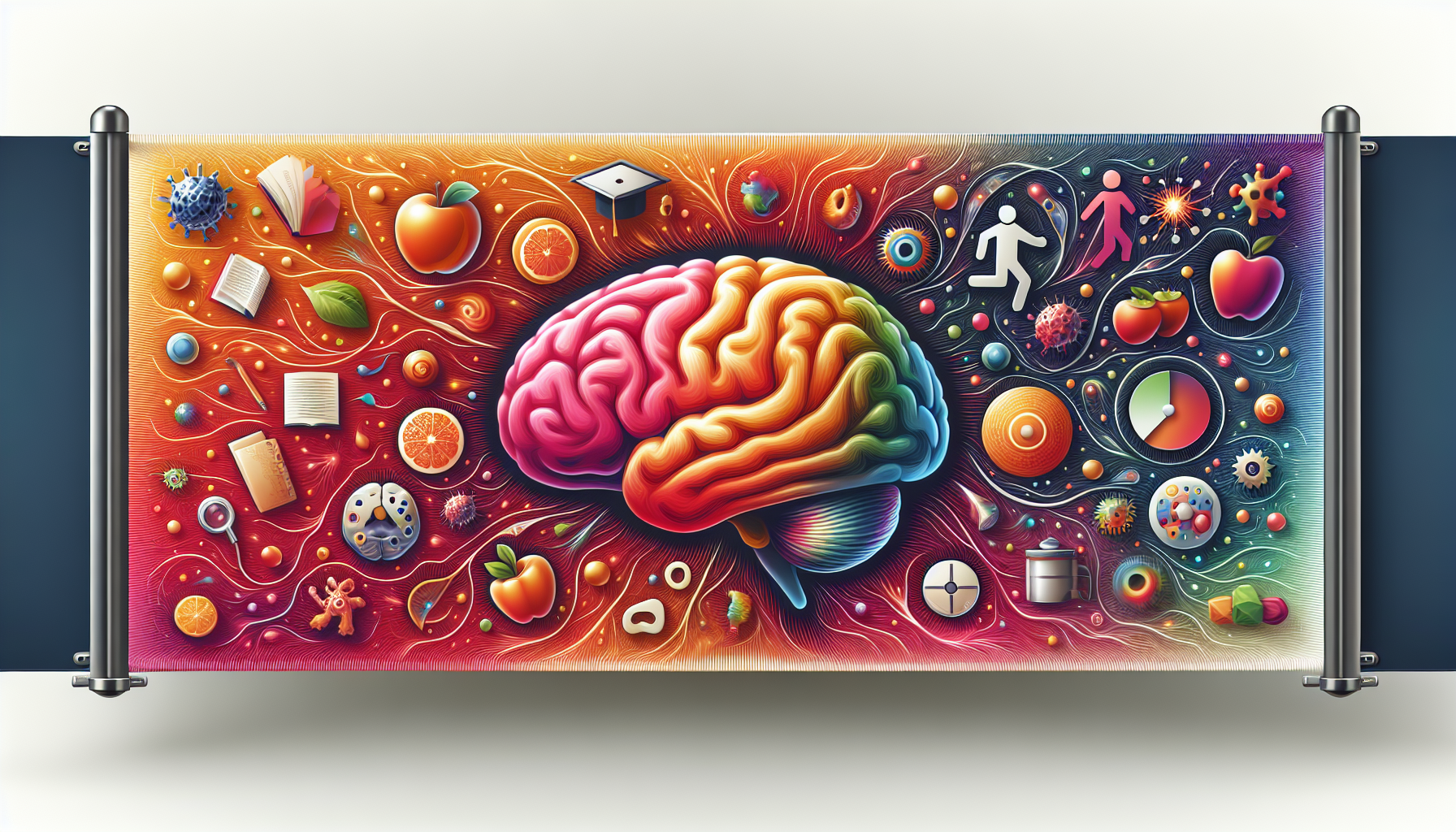On this page
Chris Bailey's TED talk discusses his journey of reducing screen time and inducing deliberate boredom and the positive effects these changes had on his attention span, creativity, and future planning. He delves into the impact of technology and constant digital stimulation on our focus and productivity, attributing frequent task-switching and distraction to the 'novelty bias' in our minds. He introduces concepts like 'scatter focus' and emphasizes the importance of relaxation activities for fostering creativity. The speaker proposes a shift in attention management, suggesting that reducing overstimulation can enhance focus and creativity, and concludes by stating that the state of our attention determines the quality of our lives.
How does it apply to you?
This knowledge can be applied in various real-world scenarios. For example, students can use these strategies to improve their focus while studying. Professionals can use these techniques to enhance their productivity at work. Overall, anyone who uses digital devices can benefit from understanding how to manage their attention more effectively.
Applied Learning to Developer Enablement
Application to Software Development
The content can be highly applicable to software development and learning in a software development organization. The fast-paced nature of the tech industry often leads to long hours spent in front of screens, leading to overstimulation and reduced focus. Developers could benefit from implementing measures to reduce screen time, such as setting strict limits on phone usage and taking frequent breaks from the computer.
The speaker's findings on focus and attention are particularly relevant. In a field that requires intense mental focus, understanding how technology affects our ability to concentrate on tasks can lead to more effective work strategies. For instance, reducing the use of communication tools like Slack could potentially increase the time spent focusing on a single task.
The concept of 'scatter focus' could also be beneficial in software development. Allowing the mind to wander could foster creativity and lead to innovative solutions to coding problems. Encouraging developers to engage in relaxing activities could offer a boost in creativity.
Finally, the speaker's proposed shifts in attention management align with the agile methodology commonly used in software development. Agile promotes working sustainably and maintaining a constant pace. Reducing overstimulation and creating more space could help developers work more sustainably and effectively.
Overall, the content suggests that software development organizations could benefit from promoting a culture that values focus, reduced screen time, and deliberate periods of relaxation and mind-wandering.
Developer Checklist
Digital Management
Attention Management
Relaxation
Summary
Technology Overuse and Its Impact
The speaker begins by observing his own behavior, noting that his daily life was dominated by screen time, from the moment he woke up to the end of the day. He mentions how he constantly switched between different devices - his phone, iPad, and computer, with his smartwatch constantly distracting him. He realized that he was wasting most of his time on his phone, leading him to conduct an experiment where he limited his phone usage to just 30 minutes a day for a month.
Effects of Reduced Screen Time
After about a week into the experiment, the speaker noticed three major changes. Firstly, his attention span increased, allowing him to focus on tasks more easily. Secondly, he found himself having more creative ideas, especially during periods of mind-wandering. Lastly, he found himself making more plans and thinking about the future more often. These effects were attributed to the reduction in screen time, particularly the reduced usage of his phone.
Understanding Focus and Attention in a Digital World
Intrigued by his observations, the speaker embarked on a journey to understand how to focus in a world full of distractions. He reviewed hundreds of research papers, met with experts studying focus, and conducted more self-experiments. His research aimed to understand how technology influences our attention and ability to focus. He found that when working in front of a computer, especially with a phone nearby, people focused on one task for only about 40 seconds before switching to something else. This was further reduced to 35 seconds when using communication tools like Slack.
Overstimulation and Distraction
The speaker concluded that the problem is not distraction itself, but rather overstimulation. He explained that our brains crave distraction, enjoying the small bits of information that we receive from social media, emails, and other digital sources. This is due to a mechanism in our minds called the 'novelty bias', where our minds reward us with dopamine, a pleasure chemical, when we seek out and find new information. This leads to a state of hyperstimulation where we constantly bounce around between different sources of attention, further fueling our craving for distraction.
Understanding Boredom
The speaker discusses the concept of boredom, which is described as the feeling experienced when transitioning from a state of high stimulation to low stimulation. This is often felt when there is a sudden shift from a busy schedule to a period of inactivity, such as relaxing on a Sunday afternoon after a hectic week. The speaker also introduces an experiment conducted to understand the effects of deliberate boredom, where the speaker performed what they considered the most boring activities for an hour each day, for a month.
Effects of Deliberate Boredom
The speaker observed similar effects as during a previous experiment involving reduced smartphone usage. After about a week, the speaker's mind adjusted to a lower level of stimulation, which expanded their attention span and reduced their need for distractions. This observation aligns with research suggesting it takes approximately eight days for our minds to fully calm down and rest. The speaker also noticed that their mind was less stimulated and did not seek distractions, leading to the generation of new ideas and plans that did not occur before.
Concept of 'Scatter Focus'
The speaker introduces the concept of 'scatter focus', which involves deliberately allowing the mind to wander. This practice is said to foster creativity and planning. Research shows that when our attention is at rest, it wanders to three main areas: the past, the present, and the future. The past is thought about 12% of the time, often recalling ideas. The present, a more productive place for thoughts, is considered 28% of the time. However, the mind thinks about the future more than the past and present combined, at 48% of the time, showing a prospective bias. The remaining time, our mind is either blank or not focused on time-bound ideas.
Importance of Relaxation and Creativity
The speaker discusses the importance of relaxation activities for fostering creativity. For the speaker, knitting is a hobby that helps to calm nerves and stimulate creative thinking. They encourage finding personal relaxation activities, whether it be taking long showers, walking around the office without using a phone, or even waiting in line. The speaker emphasizes that these activities allow the mind to wander and incubate ideas, thereby enhancing creativity.
Need for Shift in Attention Management
The speaker proposes two fundamental shifts in how we manage our attention. Firstly, they argue that instead of trying to do more, we should aim for doing less and allowing our minds to wander, as this is when our best ideas come to us. Secondly, they challenge the idea that distraction is the enemy of focus, suggesting instead that distraction is a symptom of an overstimulated mind. The speaker suggests that creating more space in our lives and reducing overstimulation can enhance our focus and creativity.
Two-Week Challenge for Stimulus Reduction
The speaker presents a two-week challenge aimed at reducing mental stimulation to improve focus and creativity. They suggest using features on devices that reduce time wasted, and establishing a daily 'disconnection ritual' where one disconnects from the internet to allow the mind to rest. The speaker also recommends weekly 'technology Sabbaths' to reconnect with the physical world, and rediscovering boredom to allow the mind to wander and generate ideas.
State of Attention Determines State of Life
The speaker concludes by stating that the state of our attention determines the state of our lives. They suggest that a distracted mind leads to a life that feels distracted and overwhelming, whereas a calm mind not only enhances productivity, focus, and creativity, but also improves overall quality of life.
FAQs
What was the speaker's daily life dominated by? The speaker's daily life was dominated by screen time.
What experiment did the speaker conduct? The speaker conducted an experiment where he limited his phone usage to just 30 minutes a day for a month.
What changes did the speaker notice after reducing screen time? The speaker noticed an increase in his attention span, more creative ideas, and found himself making more plans and thinking about the future more often.
What did the speaker's research aim to understand? The speaker's research aimed to understand how technology influences our attention and ability to focus.
What is 'novelty bias'? The 'novelty bias' is a mechanism in our minds where our minds reward us with dopamine, a pleasure chemical, when we seek out and find new information.
What is the concept of boredom according to the speaker? Boredom is described as the feeling experienced when transitioning from a state of high stimulation to low stimulation.
What is 'scatter focus'? 'Scatter focus' involves deliberately allowing the mind to wander. This practice is said to foster creativity and planning.
Why are relaxation activities important according to the speaker? Relaxation activities help to calm nerves and stimulate creative thinking. They allow the mind to wander and incubate ideas, thereby enhancing creativity.
What does the speaker propose for managing our attention? The speaker proposes two fundamental shifts in how we manage our attention. Firstly, aim for doing less and allowing our minds to wander. Secondly, understand that distraction is a symptom of an overstimulated mind.
What is the two-week challenge presented by the speaker? The two-week challenge is aimed at reducing mental stimulation to improve focus and creativity. It involves using features on devices that reduce time wasted, establishing a daily 'disconnection ritual', having weekly 'technology Sabbaths', and rediscovering boredom.
What is the speaker's conclusion about the state of our attention? The speaker concludes by stating that the state of our attention determines the state of our lives. A distracted mind leads to a life that feels distracted and overwhelming whereas a calm mind not only enhances productivity, focus and creativity but also improves overall quality of life.
Glossary
Attention Span: The length of time a person can concentrate on a single task, idea, or activity. The ability to focus one's awareness and cognitive resources on a set activity.
Boredom: The feeling experienced when transitioning from a state of high stimulation to low stimulation, often felt when there is a sudden shift from a busy schedule to a period of inactivity.
Distraction: A thing that prevents someone from giving full attention to something else. Often a result of overstimulation from various sources of information.
Novelty Bias: A mechanism in our minds where our minds reward us with dopamine, a pleasure chemical when we seek out and find new information.
Overstimulation: A state of being subject to a constant, excessive amount of disruptive stimuli. In the context of technology use, overstimulation can lead to frequent distractions and reduced focus.
Scatter Focus: The practice of deliberately allowing the mind to wander, which is said to foster creativity and planning.
Screen Time: The amount of time spent using a device such as a smartphone, computer, television, or game console.
Technology Overuse: The excessive use of digital devices like smartphones, tablets, computers, and smartwatches. It can lead to issues like decreased focus, reduced productivity, and overreliance on digital tools.






